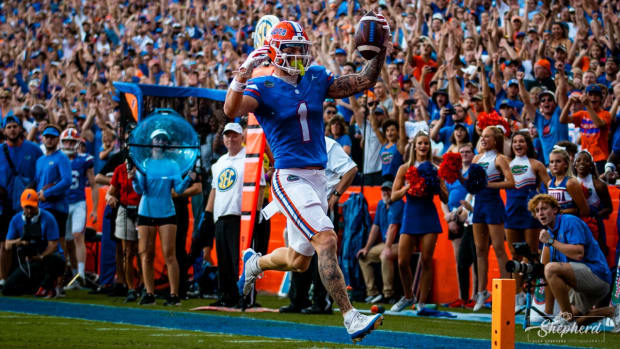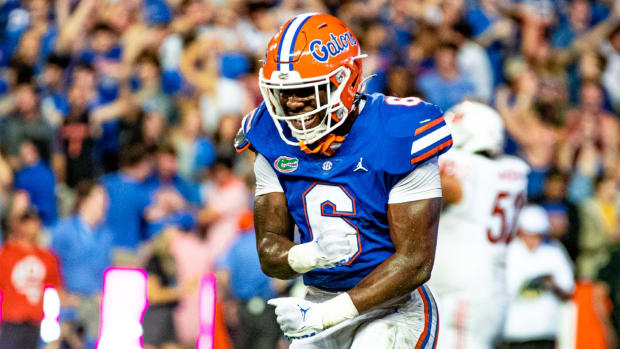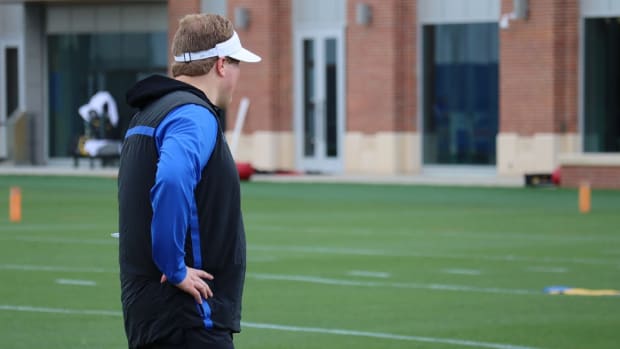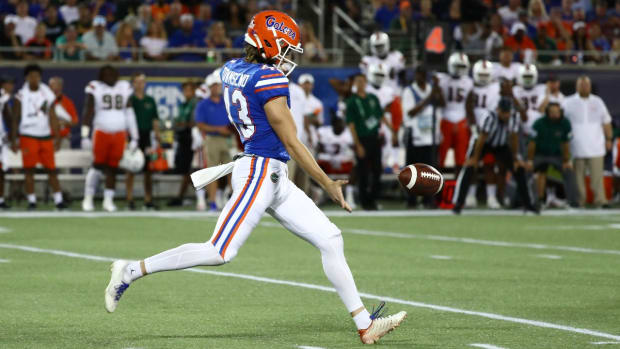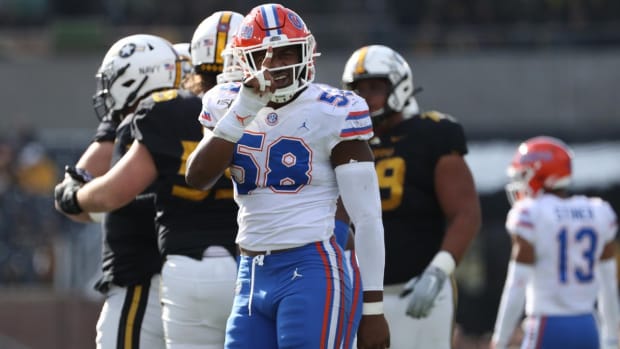Gators HC Mullen on Players Association: 'How Does That Work?'
One of the key demands stemming from the #WeWantToPlay movement, comprised of athletes primarily across the Power 5 conferences in hopes of a fall football season, is for a stronger voice at the bargaining table.
"Use our voices to establish open communication and trust between players and officials; ultimately create a College Football Players Association," the movement demanded on August 10th, with Clemson quarterback Trevor Lawrence leading the campaign.
Lawrence and this group of athletes are fighting not only for themselves, but also for future generations of college athletes, to have more say in how the NCAA conducts its business.
Some players have focused their energy primarily on the raging coronavirus pandemic, demanding protections for athletes even beyond their time with the program. Others have vocalized the need for action against social injustices that have grabbed the nation's attention this summer. Quite a few look for compensation in return for the revenue they generate for their programs and the NCAA.
These measures are worthwhile and should be respected. Players are the reason the game happens at all and they deserve a voice and, quite frankly, a slice of the pie. And there are certainly coaches and administrators that respect the movement and those demands.
Florida Gators head coach Dan Mullen is in that boat, fully supporting player's decisions to opt-out amidst the pandemic and believing in the importance of players having a voice.
But a players association? That's where Mullen starts to have questions.
“I think players getting a voice is really, really important and having a voice. How that is done is a very unique deal," Mullen said on Monday on a Zoom conference call, before asking, "Who’s running the players association?”
There was a pause. Reporter Kassidy Hill, who asked the initial question, responded wondering if Mullen was asking her, to which he unrolled a laundry list of fair, important questions facing the formation of a players association.
“Yeah, I think that would be the most important thing to find out," Mullen answered. "Are they paying dues to an association? I think there’s a lot of things. I am certainly for a player’s voice."
Mullen proceeded to ask the following as to how an association would operate, however:
- "Is the players association there to protect the players or to exploit the players even more?"
- "Who’s the president of it? ... Trevor Lawrence and [Ohio State quarterback] Justin Fields [who launched a petition to the Big Ten in hopes of restarting its fall season]? Would be the presidents of the Players Association?"
- "Who’s representing them? Who’s behind it?"
- "How does that work? Is it a voted-on board? Who votes? Who’s the representative from each team?"
- "How are they represented in all those deals?"
- "Is it done as all of college football? Is it a conference by conference deal?"
"How does that work?”
The #WeWantToPlay movement would certainly need answers to these types of questions in order to make a case for a players association, and in order to be recognized as a union, the NCAA would likely have to classify athletes as employees, which this movement could certainly lead to.
Some questions pose serious challenges, however. Would the fluidity of college football become an issue with a constantly-changing president of the players association? Who would negotiate on behalf of the players on legal matters and perhaps compensation? Would the association have universal agents in the case of state-by-state Name, Image, and Likeness legislation not being passed?
The next step for Lawrence and Co. will be to create a gameplan in order to answer similar questions before continuing to press on in regards to unionization. In place of that, Mullen suggests team and conference leadership committees get the job done well, at least in Florida and the SEC's case.
"I think out players understand in our program that they have a great voice, that they’re very open, they’re allowed to speak their mind," said Mullen. "We have a leadership committee. We have a lot of different opportunities for guys to talk and share, so I’m great. And we listen to our players’ voice a lot. I ask our players a lot about what we do within our program because I want to get their feedback on things.
"We have guys on our leadership committee who are on the Southeastern Conference leadership committee. I know their voices are heard. A lot of the things that we put in place, if you ask the league, have come out of those meetings. I do think there is in that term a player’s voice that way."
